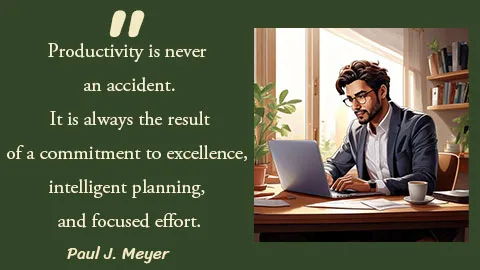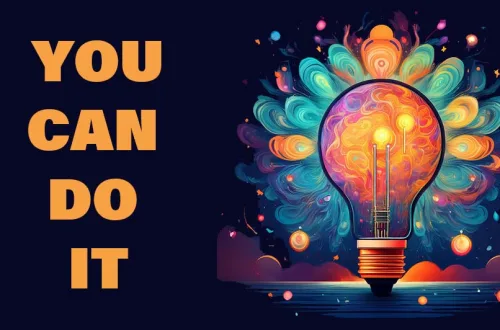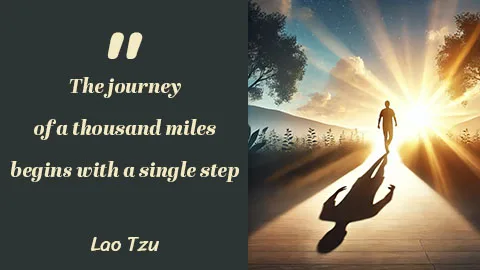
10 Proven Productivity Hacks Backed by Science and How to Implement Them
Discover 10 proven, science-backed productivity hacks that can transform the way you work. Learn actionable strategies to enhance focus, efficiency, and success in both your personal and professional life.
In today’s fast-paced world, productivity is more than just about working harder—it’s about working smarter. If you find yourself often overwhelmed, scrambling to get everything done, it’s time to rethink how you approach your day. What if you could hack your brain and environment to boost your focus, energy, and efficiency? The good news is, you can—science has uncovered powerful strategies that can help you increase your productivity.
Here are 10 proven productivity hacks, each backed by scientific research, and practical steps on how you can implement them today.
1. Time Blocking: Schedule Your Focused Work Periods
The Science: Research shows that multitasking is a myth—our brains are not designed to perform multiple tasks simultaneously. Instead, we shift between tasks, which leads to cognitive overload and reduces efficiency. Time blocking, a strategy that focuses on dedicating specific time slots to particular tasks, has been proven to enhance focus and productivity.
How to Implement It:
- Divide your day into blocks of time where you focus on one task at a time.
- For example, set aside 9 AM–11 AM to work on a particular project, and 11 AM–12 PM for emails.
- Use tools like Google Calendar or apps like Todoist to create your time blocks and ensure you stick to the schedule.
Pro Tip: Include regular breaks (like the Pomodoro Technique) to refresh your mind.
2. Prioritize with the Eisenhower Matrix
The Science: The Eisenhower Matrix is a decision-making framework used by President Dwight Eisenhower to prioritize tasks. Research shows that having clear priorities is essential for boosting productivity. By distinguishing between urgent and important tasks, you can avoid wasting time on tasks that don’t contribute to your long-term goals.
How to Implement It:
- Draw a 2×2 grid and label each quadrant:
- Urgent & Important – Do these tasks immediately.
- Important but Not Urgent – Schedule these tasks for later.
- Urgent but Not Important – Delegate these tasks if possible.
- Not Urgent & Not Important – Eliminate or ignore these tasks.
This simple framework helps you focus on what matters most.
3. Practice the Two-Minute Rule
The Science: According to David Allen’s Getting Things Done methodology, the two-minute rule is based on a simple premise: if a task will take two minutes or less, do it right away. Studies in cognitive science suggest that delaying small tasks only adds to mental clutter, making it harder to focus on larger, more important work.
How to Implement It:
- If a task comes your way and will take less than two minutes to complete, do it immediately.
- This could include responding to a quick email, filing a document, or making a quick phone call.
- By doing so, you clear up mental space for more important tasks without the distraction of lingering to-do items.
4. Use the 80/20 Rule (Pareto Principle)
The Science: The Pareto Principle, or the 80/20 Rule, states that 80% of your results come from 20% of your efforts. Research in time management has found that identifying and focusing on the most impactful tasks allows you to be significantly more productive.
How to Implement It:
- Identify the tasks that contribute the most value to your goals. These are your 20%.
- Dedicate most of your time and energy to those high-impact tasks and minimize time spent on less productive activities.
- For example, if you’re working on a project, focus on the parts that will deliver the greatest results and ignore tasks that don’t move the needle.
5. Take Advantage of the “Eat the Frog” Technique
The Science: The “Eat the Frog” technique is based on a famous quote from Mark Twain: “Eat a live frog first thing in the morning and nothing worse will happen to you the rest of the day.” Research into productivity shows that tackling your hardest task first thing in the morning can reduce procrastination and increase your overall effectiveness.
How to Implement It:
- Start your day by tackling the task you’re most likely to procrastinate on (your “frog”).
- This sets a positive tone for the rest of the day and gives you a sense of accomplishment.
- For example, if writing a report feels overwhelming, write the introduction first thing in the morning.
6. Limit Your Decision-Making (Reduce Decision Fatigue)
The Science: Decision fatigue occurs when we are overwhelmed by too many choices. Research shows that our ability to make decisions decreases as the day goes on. By simplifying decisions, you can conserve mental energy for more important tasks.
How to Implement It:
- Reduce the number of decisions you make daily by establishing routines. For example, have a set breakfast, and plan your outfits the night before.
- Use batch processing to tackle similar tasks together—such as scheduling all meetings for one time block, or answering emails in a designated window.
7. Leverage the Power of “Deep Work”
The Science: Cal Newport’s concept of “Deep Work” refers to undistracted, focused work that allows you to produce high-quality results in less time. Studies in cognitive science confirm that deep, uninterrupted work boosts productivity, while multitasking and distractions can significantly hinder your progress.
How to Implement It:
- Set aside blocks of time for deep, focused work. During this time, eliminate all distractions (turn off notifications, close irrelevant tabs).
- Consider using the “Two-Hour Rule,” where you work for 90–120 minutes without interruption, followed by a break.
- Plan your day around these deep work sessions for maximum productivity.
8. Practice Mindfulness to Boost Focus
The Science: Mindfulness practices, like meditation, have been shown to increase attention, focus, and cognitive performance. Research has found that mindfulness reduces stress and helps improve executive function, which is essential for staying focused on complex tasks.
How to Implement It:
- Spend 10-15 minutes each morning meditating or practicing mindfulness to start your day with a clear, focused mind.
- During work, take 3–5 minute mindfulness breaks to reset and regain focus.
- Apps like Headspace or Calm can guide you through mindfulness practices.
9. Sleep More for Better Productivity
The Science: Sleep plays a crucial role in productivity. Studies show that sleep enhances cognitive function, memory, and decision-making, while lack of sleep leads to mental fatigue and decreased performance. The more rested you are, the better your ability to focus and work efficiently.
How to Implement It:
- Aim for 7–9 hours of sleep each night to ensure your brain has time to recharge.
- Create a bedtime routine (e.g., reading, dimming the lights) to signal to your body that it’s time to wind down.
- Avoid screens for at least an hour before bed to improve sleep quality.
10. Regularly Reflect and Review Your Progress
The Science: Reflection and self-assessment are crucial for improving productivity. Research in psychology suggests that regularly reviewing your performance can enhance self-regulation and motivation, leading to better goal achievement.
How to Implement It:
- At the end of each day or week, take time to reflect on what you accomplished and what didn’t work.
- Ask yourself questions like: What did I do well? What could I improve next time? What’s my next step?
- Keep a productivity journal to track your habits and identify patterns that can help you optimize your workflow.
Productivity is never an accident. It is always the result of a commitment to excellence, intelligent planning, and focused effort.” — Paul J. Meyer
Productivity isn’t about working harder—it’s about working smarter. By incorporating these science-backed productivity hacks into your daily routine, you can significantly enhance your focus, efficiency, and overall success. Remember, the key is consistency. Start by choosing one or two hacks that resonate with you and gradually build them into your daily habits. With the right strategies, you can unlock your full potential and achieve more than you ever thought possible.
Master Your Productivity
Stop feeling busy and start being productive! Subscribe for practical, science-backed tips to help you work with focus and clarity.



